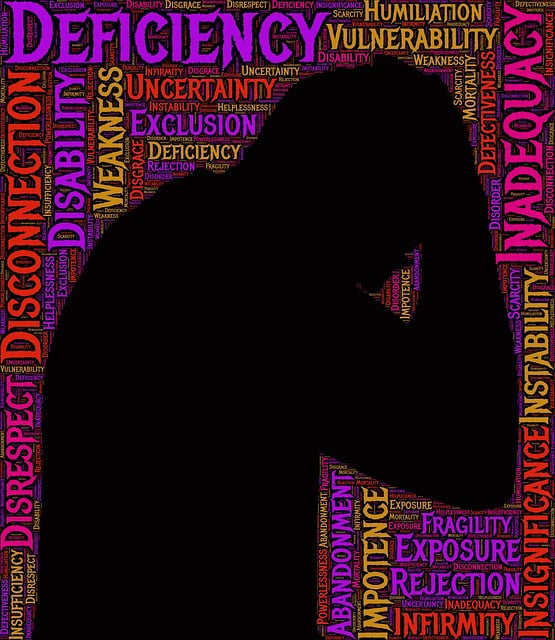Wheat Ridge Sexual Addiction Therapy employs a multi-faceted approach to treatment, focusing on risk assessment, cultural sensitivity, and Inner Strength Development. By understanding local factors like urban density and easy access to online pornography, therapists create individualized plans using tools like Mind Over Matter principles. This holistic method prioritizes harm minimization through strategic planning, burnout prevention, and self-esteem improvement. Regular monitoring, adaptation, and stress reduction techniques empower clients for successful recovery in a stigma-free environment.
In the realm of Wheat Ridge sexual addiction therapy, risk assessment and harm minimization planning are paramount. This comprehensive guide explores crucial aspects of managing risks specific to this context, focusing on identifying potential harms and developing robust strategies for mitigation. By understanding the intricacies of risk assessment, therapists can create tailored plans that enhance client safety and foster effective recovery journeys. Implement these strategies to navigate complexities and adapt continuously, ensuring a secure therapeutic environment in Wheat Ridge Sexual Addiction Therapy.
- Understanding Risk Assessment in Sexual Addiction Therapy
- Identifying Potential Harms and Risks Specific to Wheat Ridge
- Developing a Comprehensive Harm Minimization Plan
- Implementation Strategies for Effective Risk Management
- Continuous Monitoring and Adaptation: Ensuring Client Safety
Understanding Risk Assessment in Sexual Addiction Therapy

Risk assessment is a vital component of effective sexual addiction therapy, especially when considering the sensitivity and complexity of the issue. Wheat Ridge Sexual Addiction Therapy employs a comprehensive approach to understanding and mitigating risks associated with this addiction. Therapists are trained to evaluate various factors that contribute to an individual’s risk profile, ensuring a tailored treatment plan. This process involves exploring personal history, behaviors, and triggers, which helps in identifying potential hazards and designing strategies to minimize harm.
The journey towards recovery often begins with recognizing the patterns of sexual addiction and understanding its underlying causes. Cultural sensitivity in mental healthcare practice plays a pivotal role here, as therapists must consider the diverse cultural backgrounds of their clients. Inner Strength Development is another key aspect, empowering individuals to cultivate self-awareness exercises that promote healthier coping mechanisms. Through these methods, patients are equipped to navigate challenges, reduce risks, and foster positive change, ultimately leading to successful recovery outcomes in Wheat Ridge Sexual Addiction Therapy.
Identifying Potential Harms and Risks Specific to Wheat Ridge

In the context of Wheat Ridge Sexual Addiction Therapy, identifying potential harms and risks requires a nuanced understanding of the unique challenges faced by individuals seeking support in this specific community. Wheat Ridge, like many urban areas, has its own set of social and environmental factors that can contribute to or exacerbate sexual addiction. For instance, high population density, easy accessibility to internet-based pornography, and a fast-paced lifestyle may create an environment conducive to addictive behaviors. By recognizing these local factors, therapists can tailor their approaches to address not only the underlying mental health issues but also the specific risks prevalent in Wheat Ridge.
The Mind Over Matter Principles and Self-Awareness Exercises are particularly relevant tools in mitigating these risks. Through a thorough Mental Health Policy Analysis and Advocacy, therapists can foster an environment of understanding and support within the community, ensuring individuals have access to specialized services and resources tailored to their needs. This holistic approach not only aims to minimize harm but also promotes long-term recovery by addressing the root causes of sexual addiction in the specific context of Wheat Ridge.
Developing a Comprehensive Harm Minimization Plan

Developing a comprehensive harm minimization plan is an essential step in ensuring ethical and safe practices within Wheat Ridge Sexual Addiction Therapy. This strategic approach involves meticulously assessing potential risks associated with therapy, especially those related to sensitive topics like sexual behavior and addiction. By implementing a structured plan, mental health professionals can effectively mitigate these risks while fostering a therapeutic environment that promotes healing and recovery.
The process begins with thorough risk management planning, which includes identifying possible harm outcomes, evaluating the likelihood of their occurrence, and prioritizing interventions. For instance, addressing burnout prevention strategies for healthcare providers is crucial to maintain optimal performance and avoid adverse effects on patient care. Similarly, self-esteem improvement techniques can be integrated into therapy to mitigate risks related to low self-worth, often a contributing factor in addiction. Through proactive planning, Wheat Ridge Sexual Addiction Therapy can ensure that their practices align with the highest standards of care, prioritizing both client safety and mental health professionals’ well-being.
Implementation Strategies for Effective Risk Management

Implementing effective risk management strategies is paramount for any organization aiming to foster a safe and supportive environment, especially in fields like Wheat Ridge Sexual Addiction Therapy. The first step involves thorough risk assessment where potential hazards and vulnerabilities are identified. This includes recognizing triggers within therapeutic settings that might lead to relapses or distress. Once these risks are mapped, tailored mitigation plans can be devised.
For instance, resilience building workshops can empower individuals to cope with stressful situations. Stress management exercises, like journaling prompts designed for mental wellness, offer participants tools to process and release tension. Additionally, regular staff training sessions focused on recognizing and responding to at-risk behaviors contribute to a culture of proactive harm minimization. These strategies collectively enhance the overall safety net, ensuring a supportive environment conducive to recovery.
Continuous Monitoring and Adaptation: Ensuring Client Safety

At Wheat Ridge Sexual Addiction Therapy, continuous monitoring and adaptation are cornerstones of our harm minimization strategy. We recognize that the well-being of our clients is paramount, and thus, we implement robust risk assessment practices tailored to each individual’s unique needs. Our mental health professionals conduct regular evaluations, integrating both qualitative and quantitative data, to identify potential risks and triggers. This dynamic approach ensures that our interventions remain relevant and effective, addressing evolving challenges in the field of sexual addiction therapy.
By fostering a culture of adaptation, we go beyond traditional risk assessment for mental health professionals. We actively incorporate stress reduction methods into our treatment plans, aiming to mitigate risks before they escalate. Additionally, we are dedicated to Mental Illness Stigma Reduction Efforts, creating a safe and supportive environment where clients feel empowered to share their experiences openly. This holistic perspective not only enhances client safety but also facilitates faster recovery and improved outcomes.
In conclusion, implementing robust risk assessment and harm minimization strategies is paramount in Wheat Ridge Sexual Addiction Therapy. By understanding the complexities of this field, identifying specific risks, and developing comprehensive plans, therapists can ensure client safety and promote positive outcomes. Continuous monitoring and adaptation are essential to navigate the evolving nature of sexual addiction, enabling effective management and support for those seeking recovery.














